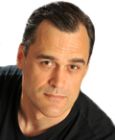
Cognitive Dissonance
The End of the World. Again.
Remember Marian Keech and "When Prophecy Fails"? Get ready for the sequel.
Posted January 7, 2011
Current and former Psych 101 students will know the story of Marian Keech and the Seekers, a small group of mid-Westerners who believed that on December 21, 1955, they would be whisked off the planet shortly before a massive earthquake tore North America asunder. It was not the accuracy of their prophecy that made them famous, fortunately. It was the presence of a small group of psychologists who saw in the Seekers a unique opportunity to test something they called "cognitive dissonance theory."
The timing of the cataclysm is very precise, the psychologists noted. How will the Seekers react when it doesn't happen? According to cognitive dissonance theory, that should depend on the strength of a person's commitment to the prophecy. Some members were only loosely affiliated and they had made no stronger commitment than attending meetings. They should be able to acknowledge the prophecy's failure, the psychologists believed. But some had quit jobs, abandoned apartments, left spouses, and encouraged others to do the same. Their commitment was massive. If cognitive dissonance theory were correct, these people would rationalize like mad, become even more convinced of the truth of the prophecy, and seek validation of their beliefs by stepping up efforts to convert others.
Which is precisely what happened. Leon Festinger and his colleagues turned their observations into a renowned book, When Prophecy Fails, which helped make cognitive dissonance theory a foundation of modern psychology.
My reason for revisting this old story? It's about to happen again.
As everyone on the planet knows by now, 2012 is the year the ancient Mayan calendar runs out. Scholars say this was of no significance whatsoever to the Mayans. It's just that when you're calculating a calendar into the future, you have to stop sometime, and 2012 was it. But millions of people would prefer to believe otherwise. So they do. And a cottage industry has sprung up to keep them supplied with the books, trinkets, and prophecies they crave.
See where this is going? That's right. It's the Seekers again. But with a lot more believers than the last time around. The parallel extends even to the precise date of the prophesied doom. It's December 21. On that day -- the 57th anniversary of the Seekers' failed prophecy -- it's all over. Or so some people think.
Personally, I'm betting the world won't end. I'll inch even further out on that limb and predict that the reactions of those who believe otherwise will depend on their level of commitment. Those only modestly committed to the prophecy will quietly accept it failed and gradually forget they worried about it. (Remember Y2K? You didn't worry about it, did you? No, of course not! It was all those other people...) But those who were deeply committed to the prophecy will wake up the next morning with heads throbbing. Oh, the cognitive dissonance! Make it stop! And it will -- thanks to some soothing rationalizations which will transfrom the apparent failure of the prophecy into a triumphant success.
In other words, it will be When Prophecy Fails: Part Two.
But how can this phenomenon be studied up close? Festinger and his colleagues were lucky that the Seekers were a small group. When they gathered to witness the end of the world, the psychologists merely had to sit in Marian Keech's living room and observe. But the 2012 Prophecy is a global phenomenon fuelled by the Internet. There's no observation point as good as Marian Keech's living room.
Or maybe there is.
So that's it, then. Get ready for When Prophecy Fails: Part Deux.

